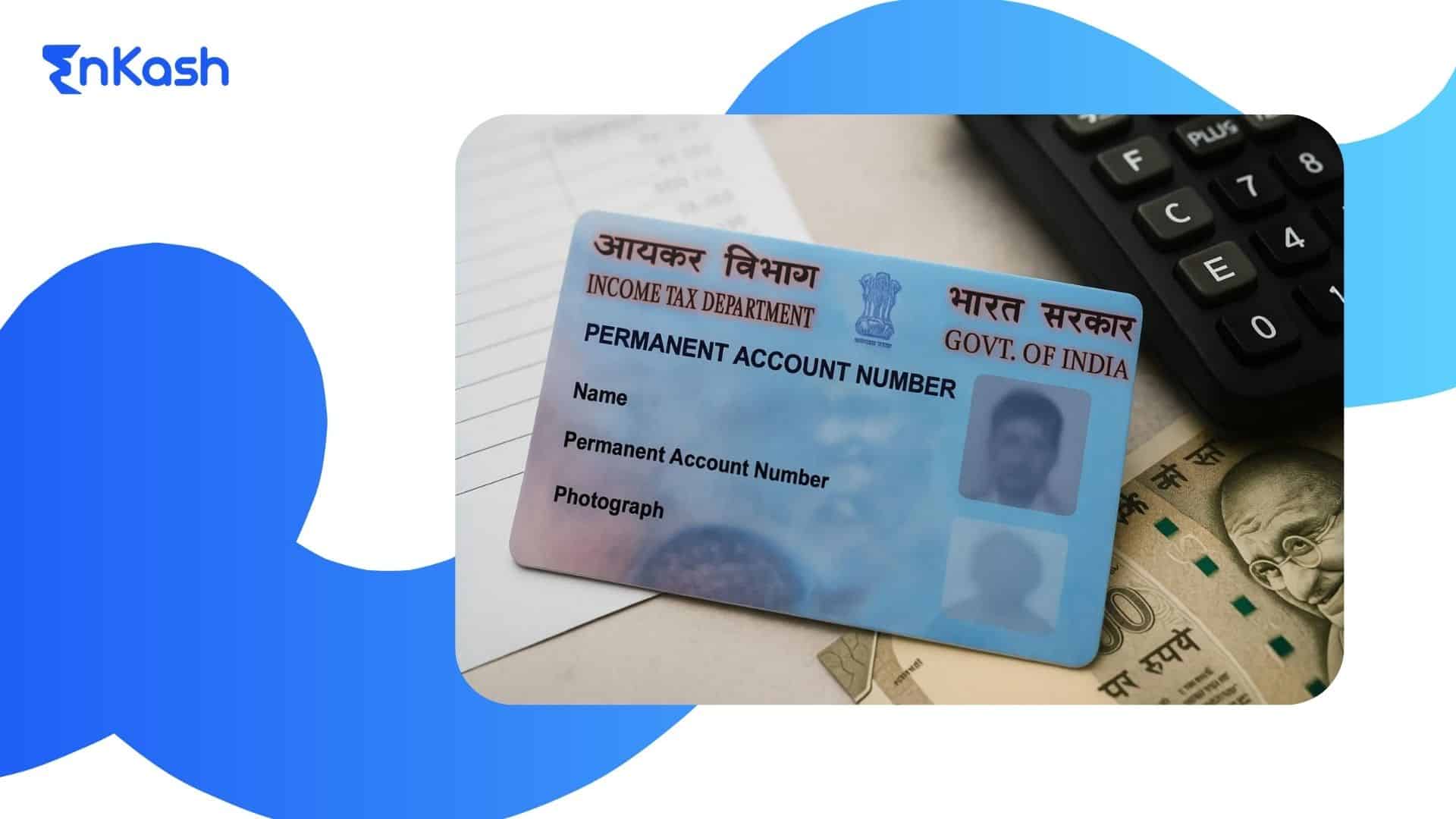Managing work-life balance in today’s fast-paced work environment has become a challenge, which is why sabbatical leave is working its way back into workplace trends. This type of leave allows employees to take a step back from their regular duties, pursue more meaningful endeavours, study, or merely recharge. Sabbaticals can help employers recruit and retain talented staff, enhance employee well-being, and boost long‐term productivity.
The comprehensive guide will cover topics like sabbatical leave meaning, eligibility criteria, is sabbatical leave is paid or unpaid, and the sabbatical leave rules in India. Furthermore, we will explore the importance of a company having a sabbatical leave policy.
What is a Sabbatical?
A sabbatical is basically a long break from work, one that gives you time to breathe, think, and focus on parts of life you rarely get time for. It’s not like a weekend off or a short vacation. It’s a planned pause where you step away from your daily routine to recharge, learn something new, or simply take care of yourself.
Think of a sabbatical as hitting the reset button on your career and life. Maybe you want to travel, spend time with family, work on your health, finish a course you’ve been postponing, or just take a break from burnout.
Companies today understand that people aren’t machines. We all need time for growth, healing, and inspiration. That’s why more workplaces are offering sabbatical leave, so employees can step away without losing their job or career progress.
What is Sabbatical Leave?
The word ‘sabbatical’ originates from the ancient idea of taking a well-defined break from work to prepare and enhance oneself. Sabbatical leaves are more common in the academic world, where professors take a period of leave to research, write books or study. In recent years, the idea of sabbaticals has been accepted in corporate life as well.
Sabbatical leave is a period of leave granted to an employee by the employee’s organization to allow them to take time off from their regular work and engage in activities that are not necessarily part of their day-to-day job. The duration of this period is longer than that of regular leave and can run from several weeks to a year, depending on the organization’s sabbatical leave policy.
Sabbatical Leave Meaning in the Workplace
The meaning of sabbatical leave has evolved over time. Traditionally, the word “sabbatical” comes from the Hebrew term Sabbath, which signifies rest. Originally, it referred to a break granted to professors and researchers, usually every seven years, so they could focus on study, research, or writing without their regular teaching duties.
In today’s corporate world, sabbatical leave is no longer limited to academics. Many organizations have adopted sabbatical leave policies to give employees the chance to recharge, pursue higher education, volunteer, or focus on personal development. Taking a sabbatical is now seen as a positive step that benefits both the employee and the company, since it helps prevent burnout, improves productivity, and boosts retention.
When it comes to sabbatical leave duration, companies typically offer a range depending on their policies. Most sabbatical leaves last between 3 months, 6 months, or up to 1 year. Some organizations may offer shorter breaks, while others provide extended leave options, especially in academia or large corporates with well-defined sabbatical leave rules.
In simple terms, the sabbatical leave has a meaning in the workplace context that is a structured, temporary break from work that supports personal growth and well-being, while keeping the employment relationship intact.
Factor |
Academic Sabbatical |
Corporate Sabbatical |
|---|---|---|
Definition |
A break for professors/researchers to focus on study, writing, or research. |
A temporary leave from job duties for personal or professional growth. |
Duration |
Usually, 1 year after every 6–7 years of service. |
Typically 3–12 months, based on company policy. |
Paid or Unpaid |
Often partially or fully paid, depending on the institution. |
Can be paid or unpaid depending on employer policy. |
Common Reasons |
Research, writing books, higher studies, and academic projects. |
Travel, skill development, higher education, volunteering, health, and family time. |
Eligibility |
Professors or senior researchers in academic institutions. |
Mid to senior-level employees in corporates, after a set tenure (e.g., 3–5 years). |
Benefits of Sabbatical Leave
Taking a sabbatical break is more than just time away from work—it’s an investment in personal and professional growth. Whether the sabbatical leave is paid or unpaid, employees gain significant advantages that often reflect positively in their careers and overall well-being. Here are some of the key benefits:
1. Prevents Burnout
Continuous work without extended breaks can lead to stress, fatigue, and a lack of motivation. A sabbatical allows employees to recharge mentally and physically, helping them return to work with renewed energy.
2. Personal Growth and Learning
Many professionals use sabbatical leave duration to pursue higher education, certifications, research, or skill development. This not only enhances knowledge but also makes them more valuable to their organization.
3. Improved Work-Life Balance
A sabbatical break gives employees the chance to spend quality time with family, focus on health, travel, or pursue hobbies—things often neglected due to busy work schedules.
4. Career Clarity and Reflection
Stepping away from routine work helps employees reflect on career goals, assess future opportunities, and even explore new passions. For many, sabbaticals are a turning point in their professional journey.
5. Boosts Creativity and Productivity
A rested mind is more creative. Employees returning from sabbatical leave often bring fresh perspectives, innovative ideas, and higher productivity levels to their workplace.
6. Employer Advantages
From an organization’s perspective, allowing sabbatical leave improves retention, builds employee loyalty, and positions the company as a progressive employer that values well-being and growth.
Difference between Sabbatical Leave and Vacation
Factor |
Sabbatical Leave |
Vacation |
|---|---|---|
Definition |
A structured, long-term break from work for personal or professional growth. |
A short-term break for rest, relaxation, or travel. |
Duration |
3 months to 1 year (varies by company policy). |
A few days to a few weeks. |
Paid or Unpaid |
Can be paid or unpaid depending on sabbatical leave rules. |
Usually paid time off (PTO). |
Purpose |
Skill development, higher studies, volunteering, health, or personal projects. |
Relaxation, travel, family time, short-term break from work. |
Impact on Career |
Helps in long-term career growth, prevents burnout, builds new skills. |
Temporary relief, minimal impact on career progression. |
Why Do People Take Sabbatical Leave?
Employees may take sabbatical leaves for several reasons, including:
- Pursuing Further Education: Employees may take a sabbatical leave to study, pursue a degree, or apply for certifications that will help them enhance their skills and contribute to their careers.
- Volunteering: Some employees may take sabbaticals to work outside their day jobs to help people or raise money for charities, often in remote places or other countries.
- Traveling: Employees looking to explore new destinations and experience new cultures, or wanting to take time off to relax, can use their sabbatical for traveling.
- Research and Writing: Employees wanting to work on long-term projects that require them to spend time and effort on researching, can take sabbaticals so they can dedicate themselves towards the project.
- Personal Reasons: Employees may request for sabbaticals for personal reasons like caregiving responsibilities, wanting to work on their health, pursuing hobbies or taking some time off for self-reflection.
Read more: Employee rewards
Who Can Take Sabbatical Leave?
Every employee working for the company may not be eligible to apply for sabbatical leave. Typically, a company’s sabbatical leave policy is reserved for employees who have worked with the organization for a long period of time. Several companies consider offering sabbatical leave only to senior employees. For instance, employees who have been with the company for more than five years and have shown excellent performance may be considered for sabbatical leave.
Types of Sabbatical Leave: Paid or Unpaid?
Is sabbatical leave paid or unpaid? This is one of the common questions employees have about this leave type. The answer depends on the company’s sabbatical leave policy.
Paid Sabbatical Leave
Some companies view sabbaticals as a way to invest in an employee’s growth and well-being. Thus, they offer employees paid sabbatical leaves – They pay employees their usual salary or a percentage of the salary when on leave. A paid sabbatical is a common practice in large organizations or companies where employees’ retention and development are given top priority.
Unpaid Sabbatical Leave
In some cases, sabbatical leave can be unpaid, which means the employee is allowed to take time off, but they will not be paid their normal salary. Unpaid sabbatical leaves often leave employees with a difficult choice, but many still go ahead with the option as they get to pursue personal or professional interests and opportunities.
Read more: Gift cards
Sabbatical Leave Rules in India
India doesn’t legally require employers to offer sabbatical leave. Thus, the sabbatical leave rules in India largely depend on the companies. Yet, there are some practices and guidelines, Indian companies may commonly follow while providing sabbatical:
Eligibility for Sabbatical Leave
In India, the eligibility for sabbatical leave may depend on the employees’ years of service in organizations, and their performance. Sabbaticals may be typically offered to employees who have been working in the organization for a minimum of five years. Senior employees with specialized skill sets are more likely to be granted sabbatical leave in India.
Duration of Sabbatical Leave
The duration of the leave depends on the organization’s sabbatical leave policy. The leave period may vary from a few weeks or months to a year. Generally, employees may get six months to 1 year’s leave, more if the sabbatical involves education, research or long-term personal projects. For other reasons, such as travelling or volunteering, the company may offer a sabbatical for 2-3 months.
Approval Process for Sabbatical Leave
Employees wanting to apply for a sabbatical must put in a formal request to their employer, typically with several months’ notice. The request should describe the purpose of their sabbatical, the duration, and plans to ensure their work is covered in their absence. In many companies, the request may be reviewed with the employee’s direct supervisor and the HR team.
Purpose of Sabbatical Leave
Companies could limit the use of sabbatical leave. For instance, companies may allow sabbaticals for personal reasons such as health or caregiving responsibilities. Or the leave could only be used for professional activities like education, research or certifications.The leave request may be denied for activities like travel.
Read more: Payroll processing
Job Security During Sabbatical
A significant concern for employees in India wanting to take sabbatical leave is job security. Employees should confirm if they will get the same role or position after returning from their sabbatical. Some companies would offer the same role/position while others may decide on the job role when the employee returns and current business requirements.
Continuation of Benefits
Benefits such as health insurance or provident fund contributions depend on the company’s sabbatical leave policy. During a paid sabbatical, companies could continue providing benefits. However, these benefits may be paused during an unpaid sabbatical.
Why Should Companies Offer Sabbatical Leave?
The sabbatical rules in India are not defined by law but depend on a company’s policy. Today, companies are more open to the idea of sabbaticals as it can help them manage an employee’s well-being and business growth in the long run.
Increased Employee Retention
Sabbaticals can be used to retain employees, especially those who might otherwise consider leaving the organization. It can help reduce turnover by giving people a chance to step aside, rejuvenate, and then join the workforce with a renewed sense of energy.
Enhanced Employee Productivity
Time away from work allows employees to relax, pursue their interests and return to work feeling refreshed. They could invest their time learning, teaching, volunteering, or even resting. A break could help boost their motivation and improve their productivity.
Improved Morale and Engagement
Companies having a sabbatical leave policy show that they care about their employees. An employer who allows employees to pursue personal and professional interests through sabbatical leave will foster a workforce that feels engaged and invested in their work, helping improve the overall morale of the company.
Attracting High-Quality Talent
Employees prefer working with companies that offer work-life balance. Companies that have a sabbatical leave policy may be able to distinguish themselves in today’s competitive job market. As employees feel valued, the company will be more likely to attract and retain top talent.
Challenges of Sabbatical Leave
While sabbaticals are good for employers and employees, they also bring with them some challenges. For the employer, it can be hard to manage an employee’s absence, especially if the employee is important. If the responsibilities of an employee on sabbatical are redistributed, other employees can feel overwhelmed and potentially burnout.
From an employee’s perspective, the main hurdle is financial. In India, where almost all sabbaticals are unpaid, employees must figure out a way to manage their finances in the absence of a regular income. Once they are back on the job, employees might take time to adjust to their roles and changes that may have happened during their leave.
Read more: HR compliance checklist
Conclusion
Sabbatical leave is a period of time off work that an employee can take without leaving employment in order to pursue personal or professional growth opportunities. The sabbatical leave rules in India largely depend on companies, but they are slowly opening up to the concept of granting employees sabbaticals. Whether sabbatical leave is paid or unpaid, it can help promote employee wellness, and job satisfaction. For employers, it could mean increased retention rates and improved productivity.
Through sabbatical leaves, employers can give employees the chance to relax, recharge, and return to the workplace with a renewed sense of commitment. It can help boost the morale of the workforce and help the company grow in the long term.
FAQs
What does sabbatical leave mean?
Sabbatical leave is a break of considerable duration for employees wanting to work towards personal or professional growth goals. The leave can last for a few weeks to a year, depending on the organization’s sabbatical leave policy. Employees can use the time to rest, work on their health, travel, study or volunteer.
What is the difference between a vacation and a sabbatical? Vacation means a temporary break from work, often lasting a few days to a few weeks. Sabbatical leave refers to a longer break from work, often lasting several months to a year. The purpose of the longer break could be for employees to participate in activities for personal or professional growth. Sabbatical leaves could be unpaid or paid based on company policies.
Is sabbatical leave paid or unpaid?
A sabbatical can be paid or unpaid, depending on the company’s policies. Some companies offer paid sabbatical leave to encourage employees to pursue personal or professional development. Paid sabbaticals may involve the employee receiving their full salary or a reduced amount during their time off. In other cases, sabbaticals are unpaid, where employees take time off without receiving any compensation.
Who is eligible for sabbatical leave in India?
Sabbatical leaves in India are typically granted according to an employee’s experience and position in the company as well as the company’s internal policies. For example, employees who have been with the company for 5-7 years may be considered for sabbaticals. Employees who have shown excellent performance or those who can help the company grow with the professional skills they acquire during the break may also be considered for sabbaticals.
What are the common reasons for taking a sabbatical leave?Employees take sabbatical leave for various reasons, both personal and professional. Some common reasons include pursuing further education, engaging in long-term volunteering projects, traveling to gain personal or professional insights, conducting in-depth research or writing books or for personal development.
How long does a sabbatical leave last?
The duration of sabbatical leave depends on the company’s policies and the reason for the leave. In most cases, employees take 3 to 6 months off, especially if the sabbatical is tied to activities like education, research, or long-term travel. Some companies, particularly larger organizations, may allow sabbaticals of up to 12 months, especially for senior employees or those with specialized roles.
How do employees apply for sabbatical leave?
Employees typically must follow their company’s official process for sabbatical application, which involves submitting a formal request in advance. The request should include details like sabbatical purpose, and desired duration. In addition, employees are usually expected to outline how their responsibilities will be managed during their absence. The request is reviewed by a supervisor and HR, who will decide based on the company’s sabbatical leave policy.
Can employees return to their same role after a sabbatical leave?Some organizations allow employees to return to the same position while others offer a similar role or assign the employees to new positions based on business requirements at the time of return. In some cases, companies may even offer different opportunities or career advancement based on the skills gained during the sabbatical. Employees should check this point with the HR before applying for a sabbatical.
How does sabbatical leave impact employee benefits in India?
Whether employees are entitled to health insurance, provident fund contribution, and other benefits during a sabbatical depends on the company’s policies. While some Indian companies continue to offer these benefits as a part of their paid sabbatical plan, these benefits could be suspended in the case of unpaid sabbatical leave.
Do companies offer sabbatical leaves in India?
Companies in India are warming up to the concept of sabbaticals, though it is not as frequently granted as in other countries. Larger companies are more likely to offer sabbaticals to retain top talent and promote employee well-being. Smaller companies may not offer sabbaticals as it can be challenging to manage the responsibilities of the employee on leave. However, as work-life balance and employee development become more important, the trend toward offering sabbatical leave in India is expected to grow.








